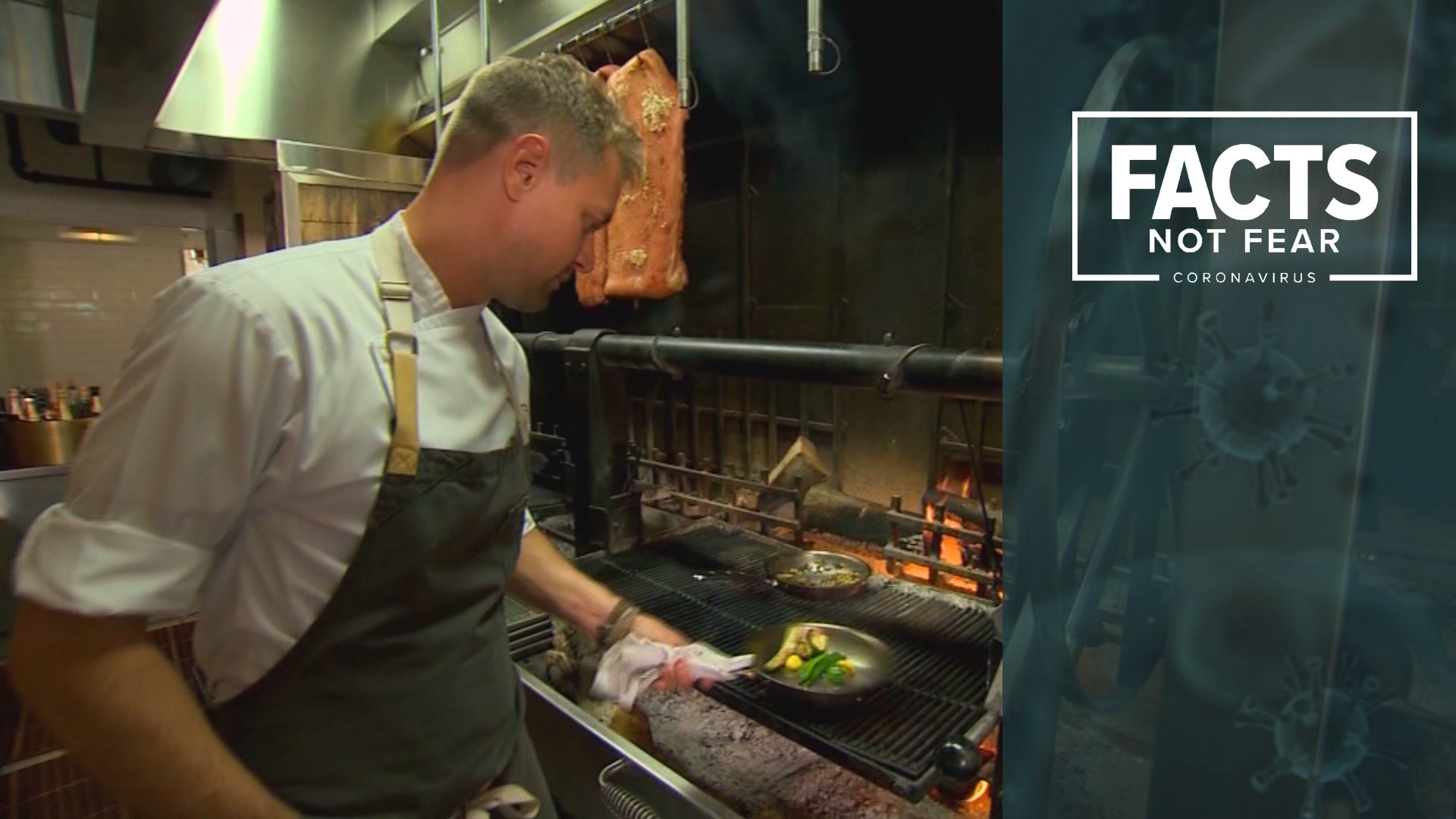SEATTLE — **Video disclaimer: restaurant file footage used in this news story is from the KING 5 archives and was shot before COVID-19. KING 5 is committed to social distancing.
Many viewers have expressed concern that eating takeout food will increase their risk of contracting COVID-19.
We spoke with a local epidemiologist and a food safety expert to help separate fear from facts.
Attorney Bill Marler of Bainbridge Island is the nation’s leading foodborne illness lawyer. In the past quarter century, he’s secured more than $700 million for victims who became sick after eating.
Dr. Bob Morris is a Seattle physician and epidemiologist.
QUESTION 1:
“Would you order takeout food from a restaurant right now?”
"The answer is yes, and I actually have been,” Marler said. "In my view, it's completely safe to do so… there's no evidence that it's transmitted via food."
Marler practices social distancing when he gets food to-go by ordering and paying online.
Dr. Morris said he’s also comfortable ordering takeout.
"Respiratory diseases are just not typically spread by food,” he said. "During the entire SARS outbreak back in 2003, there were no documented cases of a foodborne outbreak. So it's unlikely in the first place that it's being spread by food. And even if it did get into the food, if it's been cooked, it's been sterilized."
Heat kills COVID-19 and for that reason, both experts recommend ordering hot food and avoiding things like salads.
Dr. Morris also suggests ordering from restaurants with existing high marks for safety.
“You know those little smiley face (signs) they have on the restaurants? I'd look for ‘excellent,’" he said.
QUESTION 2:
“What if someone infected touches the takeout containers? Can I contract COVID-19 from bags or boxes?”
"The virus can survive for up to 24 hours on cardboard, which is essentially what you're going to get delivered food in,” Dr. Morris said. "But you're not going to eat the cardboard."
As a precaution, he suggests transferring the food to your own dishes, throwing away the boxes and bags it came in, and washing your hands before eating.
If you set the bags or boxes down on your counter, Marler said it’s a good idea to also sanitize that area.
QUESTION 3:
"Am I any safer going to the grocery store, buying my own food and preparing my own meal than I would be ordering takeout from a restaurant that is following food safety guidelines?”
"I think it's kind of a wash,” Marler said.
Dr. Morris added, "I don't think it's necessarily safer. You're going to have a lot more potential exposures that way, than if you order out from a restaurant and get cooked food.”
Both experts said that for those most vulnerable to the virus (the elderly, immunocompromised or pregnant women,) grocery shopping may actually pose more risks. Stores tend to have more people, more surfaces that are touched, and more person-to-person contact.
CONCLUSION:
Be vigilant, but don’t be scared about supporting your local restaurants by eating takeout.
"Takeout is a really great way to help your community and the people who sometimes don't have a great safety net, and to also eat safely,” Marler said.
Dr. Morris added, "We have to have a little faith in our fellow human beings. I think it's really important that people understand rationally where the risks lie."

